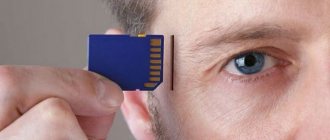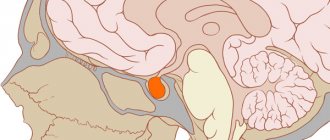Food addiction is a type of psychological addiction when a person cannot get rid of the constant desire to be satisfied with food to normalize his emotional state, reduce anxiety, or reward himself for something.
The primary factor in satisfying hunger here is not the physiological need for food, but the psychological dependence on it. Also, one of the manifestations of food addiction is an obsessive desire to lose weight and selectivity in food, which often leads to eating disorders, such as anorexia and bulimia.
Kinds
Food addiction can be of several types:
- compulsive overeating;
- anorexia;
- bulimia;
- orthorexia.
| Name of type of food addiction | Manifestation |
| Compulsive overeating | Characterized by obsessive thoughts about food and satisfying hunger, even if physiologically the body does not require food. The patient consumes large amounts of food to the point of fullness, severe overeating. Compulsive eating ends with a feeling of guilt and shame that arises in a person. |
| Anorexia | Anorexia is an eating disorder that is characterized by the patient's intentional actions aimed at reducing body weight. This type of self-harm is characterized by experts as a mental disorder associated with a fear of weight gain. The disease is more common among teenage girls, which is associated with increased social requirements of society for a woman’s appearance and the popularization of certain beauty standards. |
| Bulimia | Bulimia is characterized by eating large quantities of food and strong feelings of shame and guilt that occur after overeating. The human psyche cannot withstand such pressure, so the patient begins to use procedures for artificial emptying of the stomach (enemas, artificial induction of vomiting, taking laxatives). As a result of such regular procedures, a person’s gastrointestinal health deteriorates. |
| Orthorexia | Orthorexia is an eating disorder characterized by an obsessive desire to eat healthy and nutritious foods. At the same time, the patient feels constant anxiety about the selected products, tries to purchase only healthy foods and controls the composition of each product. Often such people have breakdowns in a strict diet. This can lead to persistent mental decline and develop into more serious eating disorders. |
Stages and degrees
It is better to identify food addiction in the early stages so that the patient does not cause much damage to his body and can get rid of the disease as quickly as possible.
There are 4 stages of food addiction:
- preclinical stage. Here parental attitudes play a big role, influencing the child. His eating behavior may be adequate, but symptoms such as loss of satiety and lack of pleasure from food appear. Moments of overeating are most often associated with certain days (holidays) and are unsystematic. The patient is dissatisfied with his figure and worries about gaining “excess” weight;
- hyperphagic stage. The stage of formation of clinical manifestations is distinguished by an already formed food addiction. The patient becomes increasingly indifferent to the amount of food eaten; he stops enjoying her. The patient also loses control over eating, which manifests itself in nutrition that does not depend on physiological hunger; the sense of proportion and control over the number of dishes is lost. The patient begins to eat at a very fast pace and does not have time to gain any satisfaction from the process; he often forgets when and how much he ate today; the feeling of fullness ceases to be felt due to the loss of the protective gag reflex. Dependence, despite obvious manifestations, begins to be justified by the patient. Due to the lack of a critical assessment by the patient of his defect, he explains the weight gain by his age, heredity or individual characteristics;
- bulimic development. At this stage, to the listed clinical manifestations are added attacks of gluttony, which may be accompanied by bulimia, which is explained by the compulsive nature of the desire for food. The patient's range of interests begins to narrow; His thoughts are constantly occupied by food, while satiety and pleasure from food are minimized. This stage becomes similar to physical addiction, when the patient experiences an irresistible attraction to the substance.
Signs of an eating disorder
The disease can be recognized by the following symptoms:
- a person constantly buys groceries and checks whether the refrigerator is full. As soon as the reserves begin to deplete, he becomes restless and tries to replenish them as quickly as possible;
- if there is no opportunity to have a snack, he literally begins to panic and his mood decreases;
- he understands that eating so much is harmful, but he cannot overcome this desire;
- a person eats not only during the day, but also late in the evening and even at night;
- when he has to share food with other people, even those closest to him, he becomes anxious.
Symptoms
A person addicted to food most likely suffers from mental disorders. Such people can be self-centered, infantile and irresponsible. They do not know how to cope with difficult situations in which they need to make decisions and be responsible for them; such cases are carefully avoided by sick people.
Food-dependent people can cope with stress, aggression, and other strong emotions and feelings only by satisfying themselves with food, regardless of whether its intake is due to physiological reasons or not.
Symptoms of food addiction:
- obsessive thoughts about food;
- loss of control, which is characterized by the inability to stop eating;
- lack of satiety, loss of satisfaction from satiety, if there is even the slightest feeling of hunger;
- food begins to be perceived as a reward for good work or as compensation for the stress experienced;
- hunger becomes a big problem when a person loses mood, enthusiasm and desire to do anything due to a lack of feeling of satiety;
- impulsiveness in eating, which is expressed by a person’s uncontrollable desire to eat something, despite having just eaten a full breakfast, lunch or dinner.
Food addiction
Definition 1
Food addiction is one of the forms of psychologically predetermined addictive behavior, which is expressed in a person’s inability to resist the need to eat.
Note 1
Moreover, the need is determined not by a physiological feeling of thirst or hunger, but by a psycho-emotional state, which entails such an activity as the absorption of food.
Absorption of food becomes a super value, which pushes other human needs into the background. At the same time, the needs of the social level (success in professional activities, personal life, financial sphere, etc.) lose their own value more than all others. When faced with problems in the social sphere, a food-dependent person increasingly comes to the option of not solving these problems, but of eating them. Thus, a person degrades at the social level.
Finished works on a similar topic
- Course work Food addiction as a psychological problem 460 rub.
- Abstract Food addiction as a psychological problem 250 rub.
- Test: Food addiction as a psychological problem 250 rub.
Receive completed work or specialist advice on your educational project Find out the cost
Reasons for appearance
Food addiction, which is as difficult to get rid of on your own as any other psychological addiction, can develop due to various reasons.
Most often, a person develops an unhealthy relationship with food during childhood.
For example, parents may reward their child with “junk” food for academic success and good behavior; this pattern continues into adulthood. Also, children may be required to finish all meals, despite being full and overcrowded, which can lead to obesity and overeating.
Insufficient attention to the preparation of a proper diet and the opinion that a feeling of overcrowding indicates good nutrition give rise to psychological deviations in the child, which is reflected in his future relationship with food. Food addiction can also develop at a conscious age, which is associated with the individual psychological characteristics of a person.
Food addiction is due to the fact that there are certain foods that are addictive:
- sugar in large doses;
- salt;
- fats;
- refined carbohydrates;
- sweeteners;
- flavor enhancers.
Such products act on the human body like alcohol through stimulating effects on the brain centers responsible for pleasure. They provoke the release of hormones such as serotonin, endorphin and dopamine, which causes strong feelings of pleasure and happiness.
The desire to get rid of stress, escape from problems and simply achieve pleasure in an easy way drives addicts who have difficulty fighting the desire to consume food to the point of physical discomfort.
As for food addictions such as anorexia and bulimia, it can develop in children due to factors such as:
- distorted perception of your body;
- unfavorable psychological climate in the family;
- desire to meet imposed beauty standards;
- fear of public ridicule;
- a consequence of psychological defense from traumatic childhood experiences;
- engaging in a modeling or other public profession that requires a certain appearance;
- genetic predisposition.
An eating disorder occurs when a child or teenager begins to suffer from an obsessive fear of gaining weight.
This leads to children starting to:
- go on hunger strikes, use diets;
- experience anxiety about the possibility of eating too much;
- induce vomiting;
- use laxatives.
What is food addiction and is it possible to fight it?
Author:
Reznik Irina
4 minutes
3834
What do food and drug addictions have in common, how do people become addicted to food, is compulsive overeating necessarily associated with obesity, and why food addiction is more difficult to fight than alcohol addiction, said Maria Bass, a psychologist at the IMC International Medical Center for Addictology.
How can you become addicted to food when we all need food?
Indeed, food is one of the basic human needs. However, recently more and more specialists have been using the term “food addiction,” backing it up with research data on the effect of compulsive overeating on the pleasure centers of the brain. Binge eating disorder is a type of behavioral addiction. Behavioral or non-chemical addiction is an obsessive desire for a certain action associated with pleasure that a person is unable to control. Food, gambling, sex, work, and the Internet often become objects of non-chemical addiction.
Experiments in animals and humans show that the brain's pleasure and reward centers - those activated by cocaine or heroin, for example - can respond similarly to certain types of food. Most often these are foods high in sugar, fat or salt.
Like drugs, these products stimulate a number of chemical reactions in the brain, such as the production of dopamine. As soon as a person experiences pleasure from what he has eaten, which is actually due to the influx of dopamine into the neural pathways of the reward system, he immediately feels the need to eat something else. (The reward system is a set of structures of the nervous system involved in the regulation and control of behavior through positive reactions to actions). Signals coming from the reward system when eating such foods can interrupt other signals - about satiety and satisfaction. As a result, the person continues to eat even when he is not hungry.
Signs of food addiction
People with food addiction lose control over their behavior. At some point, food begins to occupy most of their time: grocery shopping, compulsive overeating, anticipation and anticipation of the pleasure associated with eating. It is also very similar to any other type of addiction: drugs, alcohol. As with any other type of addiction, such people tend to develop tolerance. A person eats more and more, but each time the food brings less and less satisfaction.
Once addicted to food, a person will continue to eat despite the negative consequences. And, like those addicted to drugs or gambling, a person with a food addiction will have a hard time stopping—even if they really want to and have tried many times to stop.
Food addiction can be a significant factor in the development of obesity. But people of normal weight can also suffer from food addiction. The body may simply be genetically programmed to handle excess calories better. Or people may increase their physical activity to compensate for overeating.
How to identify food addiction
Determining that a loved one has a food addiction is very difficult. The fact is that for a long time the disease may not manifest itself in any way outwardly, and others notice that something is wrong with a person, as a rule, when his diet is completely out of control.
Researchers at Yale University have developed a questionnaire to identify people with food addiction. Here are some questions that can help determine if you have a food addiction. Do you agree with the following statements:
- If I start eating certain foods, I end up eating a lot more than I planned.
- I can continue to eat certain foods even when I'm not hungry.
- I keep eating until I feel sick.
- The thought of giving up or reducing my consumption of certain foods makes me anxious.
How to help a person with food addiction?
In some ways, recovery from food addiction can be more challenging than recovery from other types of addictions. A person dependent on alcohol, as a result of treatment, comes to complete abstinence from alcohol. But this approach is impossible with food addiction, because a person needs to eat.
For starters, you can try keeping a “food diary”. This could be a regular notepad, or one of the many mobile applications dedicated to proper nutrition. It is important to write down everything you eat and drink during the day. This will not only allow you to be more conscious about your food intake, but also to identify which foods trigger the mechanism that leads to overeating . For everyone, such “triggers” will be individual, but as a rule, these are flour, sweet, and also dishes with a lot of salt and spices. You should definitely establish a diet - eat regularly at the same time and in small portions.
However, if there is no improvement, the problem cannot be ignored. Against the background of food addiction, eating disorders such as anorexia (a neuropsychiatric disorder manifested by an obsessive desire to lose weight) and bulimia (a disorder characterized by uncontrolled consumption of food followed by a compulsive need to get rid of food) often develop. They can provoke serious problems harm your health and even lead to death. Treatment for food addiction is in many ways similar to treatment for any other addiction. Psychologists and doctors specializing in food addiction, as well as nutritionists, can help you break out of the vicious circle. The course includes socio-psychological rehabilitation, which should preferably be completed at a rehabilitation center, away from sources of stress.
Earlier, Copper News talked about what addiction is and how people get into it, who is at risk, what are the causes and consequences of addiction, as well as how and where to be treated for this scourge.
Diagnostics
Food addiction, which is completely possible to get rid of only after therapeutic therapy, is diagnosed using a short survey. By answering questions in a special questionnaire, a person can identify signs that indicate the presence of an eating disorder.
Diagnosis of food addiction:
- After losing weight, do you quickly gain back the lost pounds?
- Do you often think about food?
- Do you have an obsessive desire to count the calories of the foods you eat?
- Are there any foods that make you want to eat more of them?
- Do you weigh yourself often?
- Can you consume a large amount of food in a short time?
- Do you ever feel like after eating a small portion you lose control and start eating to excess?
- Do you have problems with emotions and feelings that may be associated with eating or not eating?
- Does the amount of food you eat depend on whether you are with a group or alone?
- Do you often find yourself in situations where you reward yourself for success with certain products?
- Do you feel guilty after eating food?
If, as a result of completing the questionnaire, the majority of the patient’s answers are “yes,” he needs to contact a specialist for therapy. You can also try to control your emotional state and nutrition on your own, but this depends on the stage of the disease and the degree of harm already caused to the body.
Treatment of food addiction
The method of correcting food addiction contains complex therapy. A world-famous method of treating eating disorders is used: a complex of psychotherapy, body-oriented therapy and dietetics.
It is also necessary to take into account that much depends on the format of the disease and the willingness of the client seeking support to understand that excessive physicality is the tip of the iceberg. There is often a need to explore parent-child relationships, the scenario of which - especially in cases of pathology - is recreated again and again by the client in his adult life.
Need some teacher advice on a similar topic? Ask a question to the teacher and get an answer in 15 minutes! Ask a Question
When to see a doctor
Getting rid of food addiction is only possible through a course of therapy with a psychotherapist. This is due to the fact that the causes of both overeating and anorexia and bulimia lie in human mental disorders. A physiological reaction is only a symptom that disappears with the solution of mental problems.
Food addiction, which can be eliminated without complications in the early stages of the disease, can lead to negative consequences for the body if left untreated.
When you identify the first symptoms of food addiction, you can try to independently work out the causes of deviations in your relationship with food, and try to find other ways to relieve stress. Most often, independent treatment is not able to completely restore a person’s mental health, therefore, regardless of the stage of the disease, the help of a qualified specialist is needed.
In the early stages of the disease, working with a psychotherapist will be enough, but when damage to the body has already been done, a nutritionist, endocrinologist or other specialist may be included in the treatment complex.
Thanks to sessions with a psychotherapist, constant thoughts about food disappear, as does the desire to abuse food. After the course of treatment, the patient learns to separate his own, internal emotions from the products on store shelves.
Prevention
It is possible to prevent food addiction by following certain rules that can be adapted both for the proper upbringing of a child and for the formation of a healthy relationship with food in older age.
- Diet. The morning meal should not be too voluminous and rich; in the morning, the cells of the body tissues still have enough nutrients received the day before. Lunch should also not be too eventful. A healthy dinner should be hearty and varied, as it involves rest after an active day and relaxation. As for the nutrition of a preschool child, he should eat 5-6 times a day: breakfast, lunch, afternoon snack, dinner and second dinner. At the same time, hearty meals should include breakfast, lunch and dinner.
- Information about the benefits and harms of food. From early childhood, a child should be familiar with the basics of healthy eating. An adult can also prevent the development of obesity by studying the composition of foods and the effects of vitamins, fats, carbohydrates and proteins. Determining your optimal daily caloric intake and creating a daily menu in accordance with it will help prevent the development of food addiction.
- Food culture. It is advisable to eat food only at the table, and before eating it is useful to drink some water to reduce the rate of food absorption. The habit of eating small portions and chewing your food thoroughly will have a positive effect on healthy satiety signals and prevent overeating.
- Ignoring temptations. In your diet, it is advisable to exclude unhealthy foods, the uncontrolled use of which can provoke regular overeating.
- Avoiding using food as a reward or punishment. During childhood, parental attitudes about food as a way to motivate a child can negatively impact their relationship with food in the future. In adulthood, it is also not uncommon to reward yourself for good work with unhealthy food. This can lead to psychological problems and obesity.
- Active lifestyle. Sports and other physical activity are one of the best ways to prevent food addiction, as long as a person exercises in adequate quantities and does not pursue the goal of losing weight to an unhealthy state. The desire to be athletic should be driven by the goal of good health and vitality.
Treatment methods
Food addiction, which can be eliminated through a complex of therapy prescribed by a specialist, can be cured using several methods. The main one is psychotherapy; Medications and folk remedies, if necessary, complement the main course of therapy and are also prescribed only by the attending physician.
Medications
Drug treatment for food addiction is necessary only when the disease is accompanied by any mental disorders. It often happens that food addiction provokes the development of depression or becomes its consequence, so a psychiatrist can prescribe a group of medications necessary to improve the patient’s emotional state.
Medications that a specialist may prescribe include:
- tranquilizers (hydroxyzine, grandaxin, nitrazepam, clonazepam, mezapam, frisium (clobazam), phenazepam). Used for anxiety, phobias, sleep disorders and restlessness;
- antidepressants (sertraline, fluoxetine (Prozac), citalopram). Used for depression and anxiety, vegetative and hypochondriacal disorders;
- neuroleptics (haloperidol, droperidol, thioproperazine). Used for severe mental disorders accompanied by paranoia, delusions, and hallucinations;
- nootropics (nootropil, picamilon, cerebrolysin). They are used in case of exhaustion, complete loss of ability to perform physical activity and inadequate perception of the disease by the patient.
Traditional methods
Traditional methods in the treatment of food addiction are used as part of complex treatment together with psychotherapy.
There are recipes that help cope with the stress that arises in the patient:
- Tea to reduce anxiety. This drink has a calming effect, relieves headaches and improves digestion.
To prepare the drink you need to mix:
- 0.25 parts anise hyssop;
- 0.25 lemon balm;
- 4 pinches of lemon zest;
- 1 stem of lemongrass;
- 0.5 parts mint;
1 tbsp. mixed ingredients, pour 1 liter of boiling water. The prepared tea should steep for about 15 minutes. It is advisable to take the drink during the day.
- Chamomile tea. Chamomile is a proven and safe remedy for depression. To prepare tea you need to take 1 tbsp. chamomile flowers and pour 1 liter of boiling water over them. It is advisable to take the drink during the day.
- Calming oil. The mixture helps to temporarily get rid of irritability and reduce excitability. To prepare, you need to mix 200 g of flowering mignonette and 0.5 liters of sunflower oil. The resulting oil mixture must be infused for a week and a half in a cool place, shaking it periodically. The resulting product should be rubbed into the temples no more than 2 times a day.
- Blooming Sally. Herbal tincture relieves the patient from insomnia. To prepare the solution, you need to brew 15 g of fireweed tea and infuse it for at least 10 hours. The resulting drink should be strained and taken before bed.
- Lavender syrup. The drug is useful to take during depression; it reduces anxiety, headaches and has a positive effect on the gastrointestinal tract. To prepare, you need to take fresh lavender tops (about 170 g) and pour 0.5 liters of boiling water over them. The mixture should sit for about a day. The resulting infusion must be filtered and boiled, again add no more than 200 g of lavender tops and let the mixture brew. Add 0.5 kg of sugar to the resulting liquid, mix thoroughly and cook over low heat until thick. Lavender syrup is used several times a day.
Other methods
An important method of treatment is psychological assistance to the patient.
There are several types of psychotherapy, each of which can help a patient with food addiction cope with the disease:
- cognitive behavioral therapy. The course of therapy is based on the theory of the patient's dysfunctional and unrealistic ideas about his appearance, nutrition and food. This method is considered the most effective in the fight against food addiction, as it is aimed at changing the patient’s distorted idea of food as the only way to satisfy. In the case of anorexia and bulimia, the patient’s image of his body changes;
- family psychotherapy. Most eating disorders develop in a person as a result of negative family attitudes. During childhood and adolescence, family members should support the patient and work on a trusting relationship with him. Family psychotherapy reveals closeness between people and allows you to better understand and accept each other;
- interpersonal therapy. It is not uncommon for a person with food addiction to have problems communicating with people. Working through scenarios of behavior with others will help restore self-esteem and teach the patient to receive support from loved ones and other people in the future, and not to be afraid of contacts with others.
Diet therapy is also an effective treatment for food addiction.
It plays an important role in the treatment of anorexia and bulimia when the patient is prescribed a healthy diet. It is developed by a nutritionist in accordance with the individual situation of the patient.
When forming a diet, the doctor follows certain principles:
- nutrition saturates the body only with all the necessary substances, supplied in a timely manner and in the right quantity;
- proper food intake consists of non-solid cooked foods;
- the diet is based on fractional meals;
- the desired amount of water consumed is from 1.5 liters per day.
How to get rid of food addiction on your own?
Addiction, even if not drug addiction, but food addiction is not such a simple problem, so you should learn how to deal with food addiction yourself from specialists, and not rely on luck, making the situation worse. And first of all, it is necessary to exclude biological malfunctions in the functioning of organ systems, knowing in advance that the main problem is in the psyche, then it is worth identifying your own motivation for getting rid of it, without which there will be no progress in self-healing. It helps a lot to analyze this way of life and consider the prospects where it will lead in ten years.
The mechanical and quite simple stage is to draw up a proper nutrition plan, including acceptable foods (with a distinction in what quantities and how many times a day or week each of them can be consumed), portion sizes and frequency of meals. You should always have the ideal list at hand, but you should not demand that you immediately and strictly adhere to such a diet. Old habits, reinforced by physical sensations, are quite strong and after holding on for a week, you can wake up near a fast food stall, finishing your sixth shawarma. Allow yourself sweets and unhealthy treats, but gradually reduce their volume.
When adjusting the nutrition aspect itself, do not forget that the cause of any addiction lies in the psyche and without paying due attention to the causes of addiction and changing your life situation, all efforts to improve your diet will be meaningless. Resolve old problems that undermine your mental resources, find something to fill the inner emptiness (look for emotions - new hobbies, interesting travels, people). Playing sports and filling yourself with positive emotions are allies in the fight against addiction.
This will be followed by deeper and more serious work on increasing your own self-esteem: find things that develop you and reward yourself for every achievement, no matter how small. Just not with food - give yourself new experiences by buying a movie ticket or riding a horse. If you won the math olympiad, treat yourself to a pool pass; if you defended your master's degree, update your haircut; successfully pass your project, go on a picnic. Try to keep your activities varied and develop your different sides. Your main task is to normalize your life, learn to cope with stress and resist external pressure instead of eating up problems.
Possible complications
The most important and severe long-term complication of food addiction is obesity. With constant overeating and eating foods rich in sugar, weight gain is inevitable.
Chronic overeating, if left untreated, can cause significant harm to health and lead to the following serious diseases:
- Type 2 diabetes mellitus , when the body's metabolism of water and carbohydrates is disrupted. Most middle-aged and older people with diabetes are obese;
- oncology. Obesity increases the chances of colon, uterine and breast cancer;
- cardiovascular diseases. Obesity can cause hypertension and increase the risk of heart attack and stroke;
- musculoskeletal disorders. Obese people most often experience abnormalities in the functioning of the spine, joints, and limbs.
In addition, eating disorders are associated with human depression. More than half of the patients suffered depressive episodes, which either led to food addiction or were its consequence.
Food addiction is a mental pathology, which can only be overcome through a course of psychotherapy. For a person suffering from food addiction, food ceases to be a physiological need, which can lead to negative consequences for the body.











